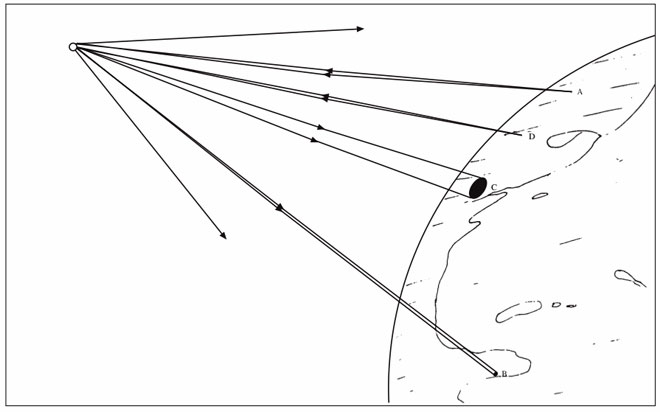
1945: Arthur C. Clarke begins privately circulating copies of a paper that proposes using space satellites for global communications.
It was a bold suggestion for 1945, as the war was just winding down and most people were undoubtedly more concerned about the necessities of life than they were with beaming radio waves down from space. But Clarke, a physicist and budding science-fiction author, had his head firmly in the future. The paper, “The Space-Station: Its Radio Applications,” suggests that space stations could be used for broadcasting television signals (.pdf).
The Space-station was originally conceived as a refueling depot for ships leaving the Earth. As such it may fill an important though transient role in the conquest of space, during the period when chemical fuels are employed…. However, there is at least one purpose for which the station is ideally suited and indeed has no practical alternative. This is the provision of world-wide ultra-high-frequency radio services, including television.
(Television itself was barely a commercial reality at this point, so that’s some forward thinking.)
Clarke followed up on this private paper with an article published in October 1945 in Wireless World titled, “Extra-Terrestrial Relays: Can Rocket Stations Give World-wide Radio Coverage?” The paper discusses how rocket technology, such as that used in German V-2s during the war, could be turned to peaceful ends by launching artificial satellites into orbit. All you needed, Clarke argued, was a rocket capable of pushing a payload past an orbital-insertion velocity of 8 km/second [5 miles/second].
However, the smallest orbits — such as those that would be used by the Russian Sputnik satellites in the following decade — would circle the earth in about 90 minutes. Because of basic orbital mechanics, the farther out you could get a satellite, the slower its orbit around the Earth would be. At one point, about 42,000 km [about 26,100 miles] from the center of the Earth, the satellite’s orbit would be exactly 24 hours, the same as the Earth’s rotation. Clarke wrote, in Wireless World:
A body in such an orbit, if its plane coincided with that of the earth’s equator, would revolve with the earth and would thus be stationary above the same spot on the planet. It would remain fixed in the sky of a whole hemisphere and unlike all other heavenly bodies would neither rise nor set.
Clarke wasn’t the first to propose such an orbit, known as geostationary, but his essay did popularize the idea. And while it may have seemed far-fetched in 1945, it was less than 12 years before Sputnik and only 17 years before the first TV broadcast satellite, Telstar. Then, in 1965, Intelsat began launching the first satellite system based on geostationary satellites, and there are more than 300 such satellites in Clarke orbits today. The future of communications evolved much as Clarke had foreseen it.
Although Clarke eventually became more famous as a science-fiction author, penning such classics as 2001and Childhood’s End, he regarded his satellite proposal as more significant. I interviewed Clarke for a profile inMobile PC magazine’s March 2004 issue. The headline referred to him as “The Father of the Star Child.” He replied with this note, handwritten on a reprint of his original Wireless World story:
Appreciate the write-up in March … but I think being ‘father’ of the COMSAT more important than the Star Child!
Original post: May 25, 1945: Sci-Fi Author Predicts Future by Inventing It | This Day In Tech | Wired.com.